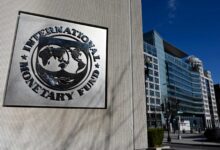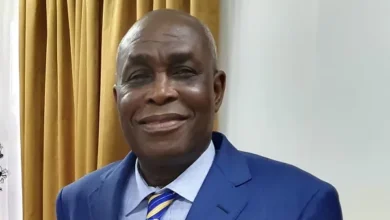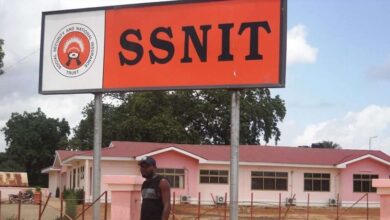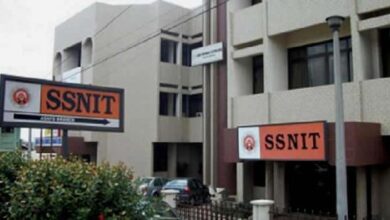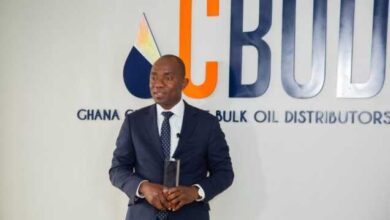Amin Adam discusses with UK’s Second Permanent Undersecretary measures to improve Ghana’s economy
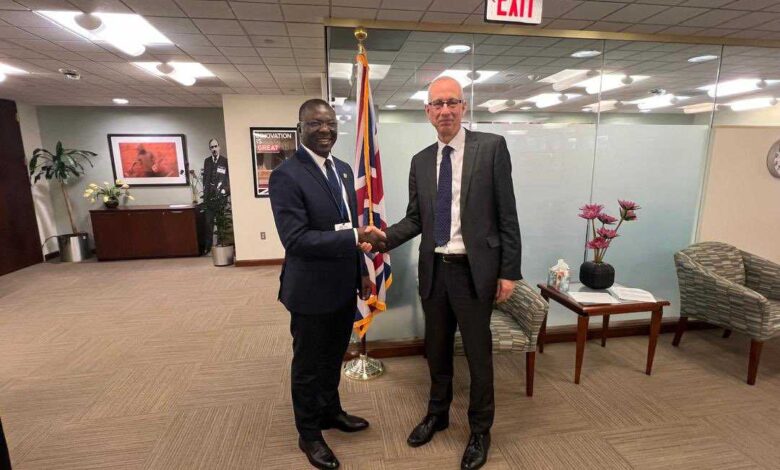
The Finance Minister Dr Mohammed Amin Adam has met with the UK second Permanent Undersecretary at the Foreign, Commonwealth and Development Office, Mr Nick Dyer, at the ongoing International MoneyaryFund (IMF), World Bank Spring Meetings in Wahsington.
They discussed issues including the IMF Excternal Credit Facility (ECF) programme, measures to improve the economy, debt, domestic revenue mobilization and support to small and medium scale entreorises (SMEs).
Finance Minister has met with Mr Nick Dyer, UK second Permanent Undersecretary at the Foreign, Commonwealth and Development Office. They discussed issues including the IMF ECF programme, measures to improve the economy, debt, domestic revenue mobilization and support to SMEs. pic.twitter.com/WBEW27Oc88
— Ministry of Finance, Ghana (@MoF_Ghana) April 18, 2024
Dr Mohammed Amin Adam and Mr Nick Dyer also discussed issues of mutual interest to deepen Ghana-UK relationship, including private sector led growth, inclusive development and how to attract UK investment to Ghana.
IMF/WORLD BANK SPRING MEETINGS
Dr Mohammed Amin Adam and Mr Nick Dyer, UK discussed issues of mutual interest to deepen Ghana-UK relationship, including private sector led growth, inclusive development and how to attract UK investment to Ghana. pic.twitter.com/vj78IKV5Ad
— Ministry of Finance, Ghana (@MoF_Ghana) April 18, 2024
Similalry, the Executive Director, African Development Bank (AfDB) Rufus N. Darkortey, paid a courtesy call on Dr Amin Adam at the on-going IMF/World Bank Spring Meetings.
They also discussed issues of mutual interest and Ghana’s relation with the AFDB.
Rufus N. Darkortey, Executive Director, African Development Bank (AfDB) paid a courtesy call on Dr Amin Adam at the on-going IMF/World Bank Spring Meetings in Washington. They discussed issues of mutual interest and Ghana’s relation with the AFDB. pic.twitter.com/rsUpaJw1rf
— Ministry of Finance, Ghana (@MoF_Ghana) April 18, 2024
At a panel discussion on the sidelines of the Spring Meetings Dr Mohammed Amin Adam has said that Ghana had so far achieved 88.85 percent of electricity coverage.
he said the government ensures that it achieves the 100 percent target.
He said the government is determined to achieve the 90 percent threshold by the end of the year.
“You have to be deliberate about energy access and so right from the early 1990s, we were very intentional, the government decided that Ghana must achieve universal access to electricity and so we put in the relevant policies, the national electrification scheme, rural electrification programme and the self-help electrification programme through which communities and the government share the cost of electricity access and so to them, it has paid off, we have achieved over 88.85% access.
The rest that we have not extended electricity to are usually ungrid communities, and island communities and we are trying to achieve that through mini-grids and other smaller systems that will extend electricity to all of them so we can achieve universal access.. By the standard of the industry, universal access is about 90 percent and we are determined to achieve this by end of this year.
“What you should not do is that in the past we procured energy through unsolicited projects, now we see that the costs are coming down and therefore we can acquire more capacity at lower cost through competitive procurement and therefore for renewables for example, we have moved to competitive prceurem so we can lower cost
“So we should avoid the practice of procuring energy through unsolicited projects because that turns to be very expensive. It is also important that when you are in crisis you do not acquire as many generation capacities as you will not need because the tendency for investors to come knocking on your door, justifying why you should acquire more because you have a crisis is very high and at the end of it you acquire capacity at very high-cost which you will have to contend with for the rest of the life span of those contracts.
“Let’s avoid this and also let us be intentional and plan for the long term on how we procure capacity but also how we build the infrastructure for the transmission to ensure that every part of the country gets access to electricity,” he said.



